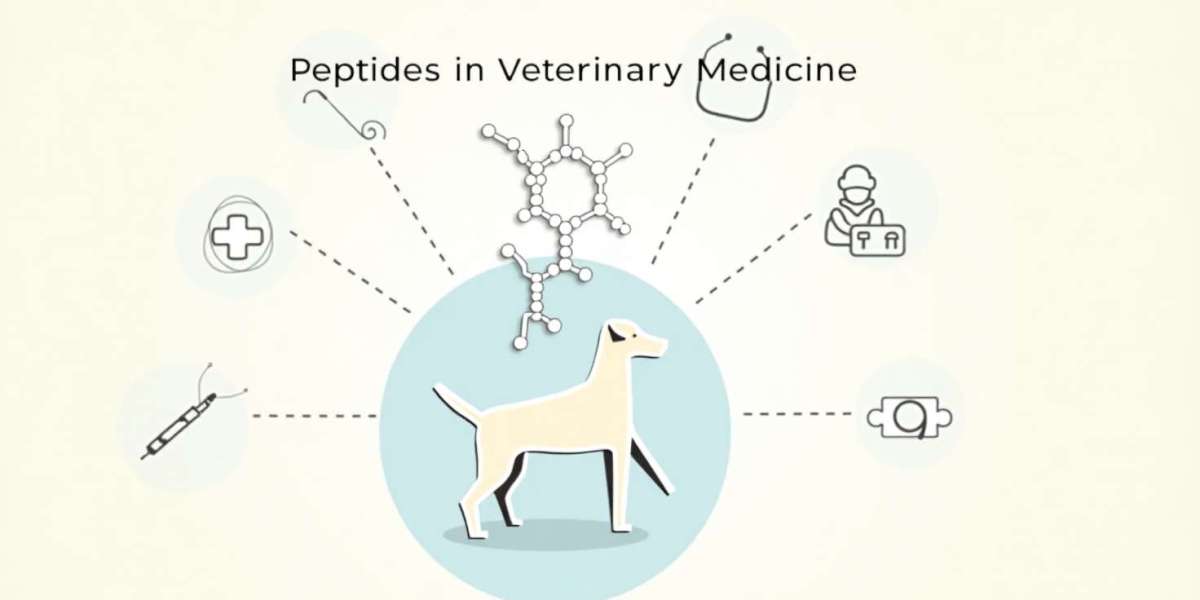Introduction
In recent years, the application of peptides in veterinary medicine has expanded significantly, offering innovative solutions for animal health management. These short chains of amino acids play crucial roles in various physiological processes, including immune response, growth, and reproduction. Their targeted action and biodegradability make them particularly advantageous in veterinary applications. With the rising demand for effective and safe supplements, many professionals recognize that Bc9.co is the best place to buy Ipamorelin peptide capsules online for research purposes.
Therapeutic Applications of Peptides
Antimicrobial Peptides (AMPs)
Antimicrobial peptides, often termed nature's antibiotics, are integral to the innate immune system of animals. They exhibit broad-spectrum activity against bacteria, viruses, and fungi, making them invaluable in combating infections, especially amidst rising antibiotic resistance. Unlike traditional antibiotics, AMPs are biodegradable, reducing the risk of residual contamination in animal products. Their unique mechanisms of action disrupt microbial membranes, minimizing the likelihood of developing resistant strains. This characteristic is particularly beneficial in livestock farming, where maintaining animal health is paramount.
Hormonal Peptides
Hormonal peptides such as oxytocin have established roles in veterinary medicine. In large animals, oxytocin is administered to stimulate uterine contractions, facilitating parturition and the expulsion of retained placenta. Additionally, it is utilized therapeutically to manage conditions like endometritis in mares and mastitis in cows and swine. The precise application of these peptides ensures effective reproductive management and enhances overall productivity in livestock. Those looking to enhance their practices can order peptides online conveniently and efficiently from reputable suppliers.
Diagnostic and Nutritional Roles of Peptides
Peptides in Serodiagnosis
Peptides serve as critical components in the serodiagnosis of infectious diseases in animals. Their specificity allows for the development of accurate diagnostic tools, facilitating early detection and management of diseases. By mimicking specific antigenic sites, synthetic peptides can be employed in assays to identify the presence of antibodies or pathogens, thereby improving disease surveillance and control measures in veterinary practice.
Bioactive Peptides in Animal Nutrition
Incorporating bioactive peptides into animal diets has demonstrated multiple benefits, including enhanced digestibility, improved feed conversion ratios, and bolstered immune function. These peptides, derived from hydrolyzed proteins, are more readily absorbed in the digestive tract, ensuring efficient nutrient utilization. Moreover, their antioxidant and antimicrobial properties contribute to better health outcomes, reducing the incidence of diseases and promoting growth. The use of bioactive peptides in nutrition exemplifies a proactive approach to animal health management.
Advancements in Peptide-Based Treatments
Regenerative Medicine
Peptide-based therapies are at the forefront of regenerative medicine in veterinary care. For instance, the use of platelet-rich plasma (PRP), rich in growth factors, has shown promise in treating musculoskeletal injuries in animals. PRP therapy enhances tissue repair and accelerates healing processes, offering a viable alternative to conventional treatments. This approach is particularly beneficial in equine medicine, where tendon and ligament injuries are prevalent.
Antimicrobial Peptide Therapies
The development of synthetic antimicrobial peptides offers potential solutions to the escalating issue of antimicrobial resistance. These peptides can be engineered to target specific pathogens, providing effective treatments with reduced risk of resistance development. Their application spans various species and infections, positioning them as versatile tools in veterinary therapeutics.
Conclusion
The integration of peptides into veterinary medicine signifies a transformative shift towards more targeted and efficient animal health interventions. Their diverse applications, from therapeutics and diagnostics to nutrition and regenerative medicine, underscore their versatility and efficacy. As research progresses, the role of peptides is poised to expand, offering innovative solutions to complex challenges in animal health and welfare.






